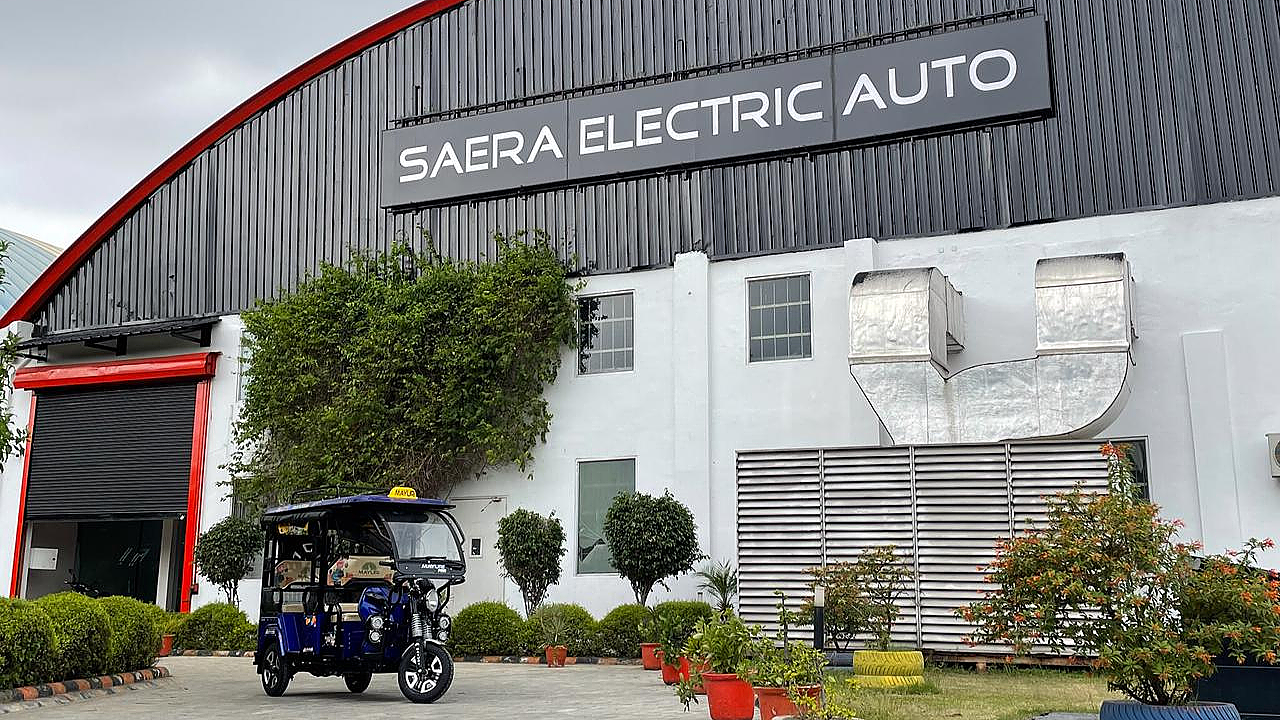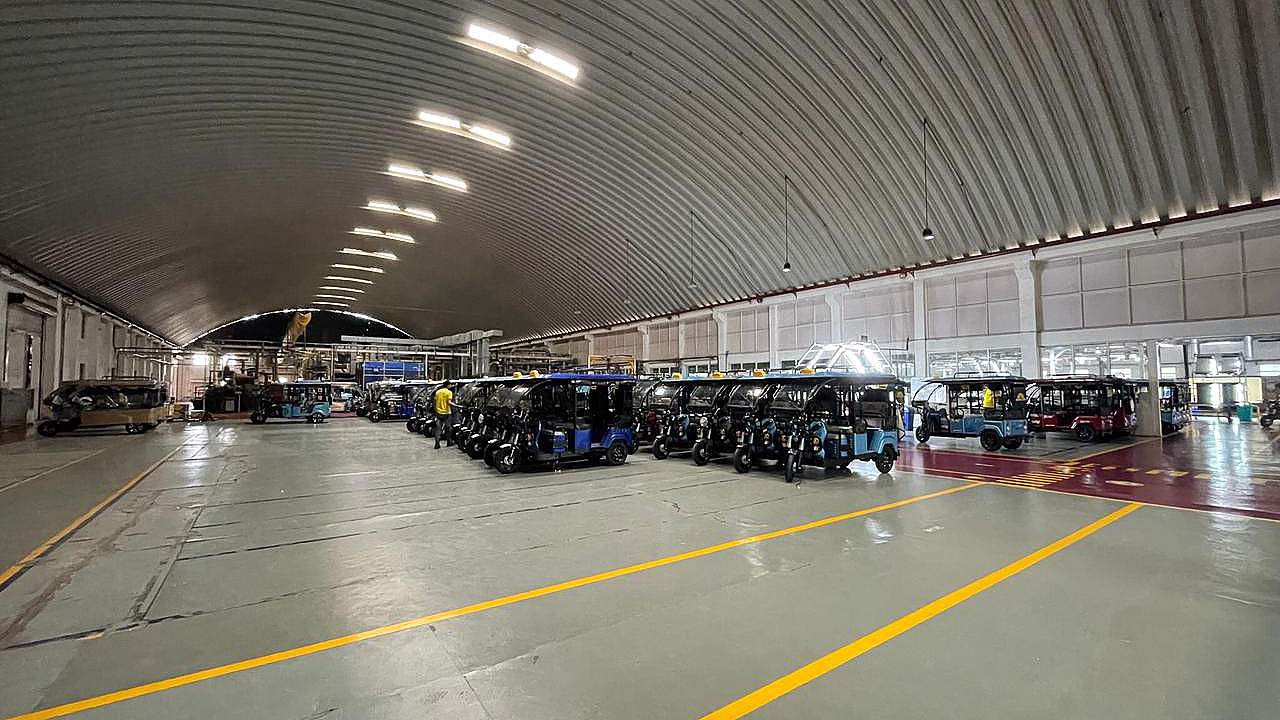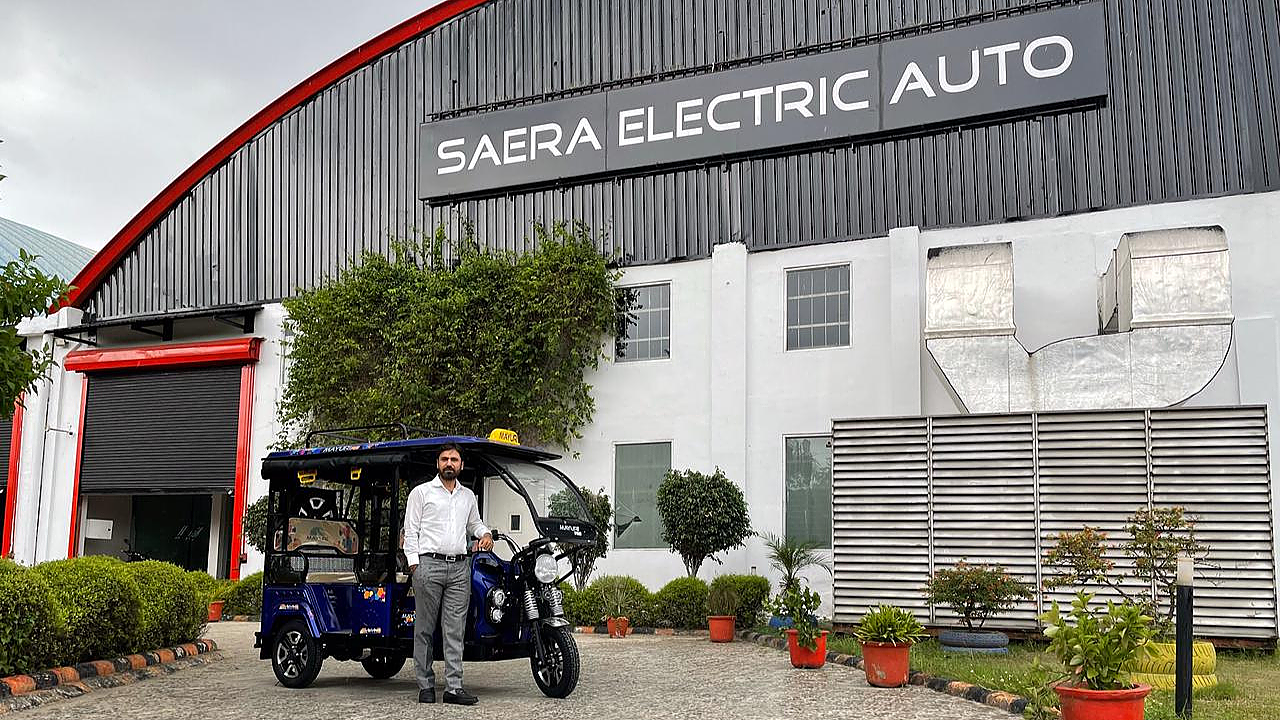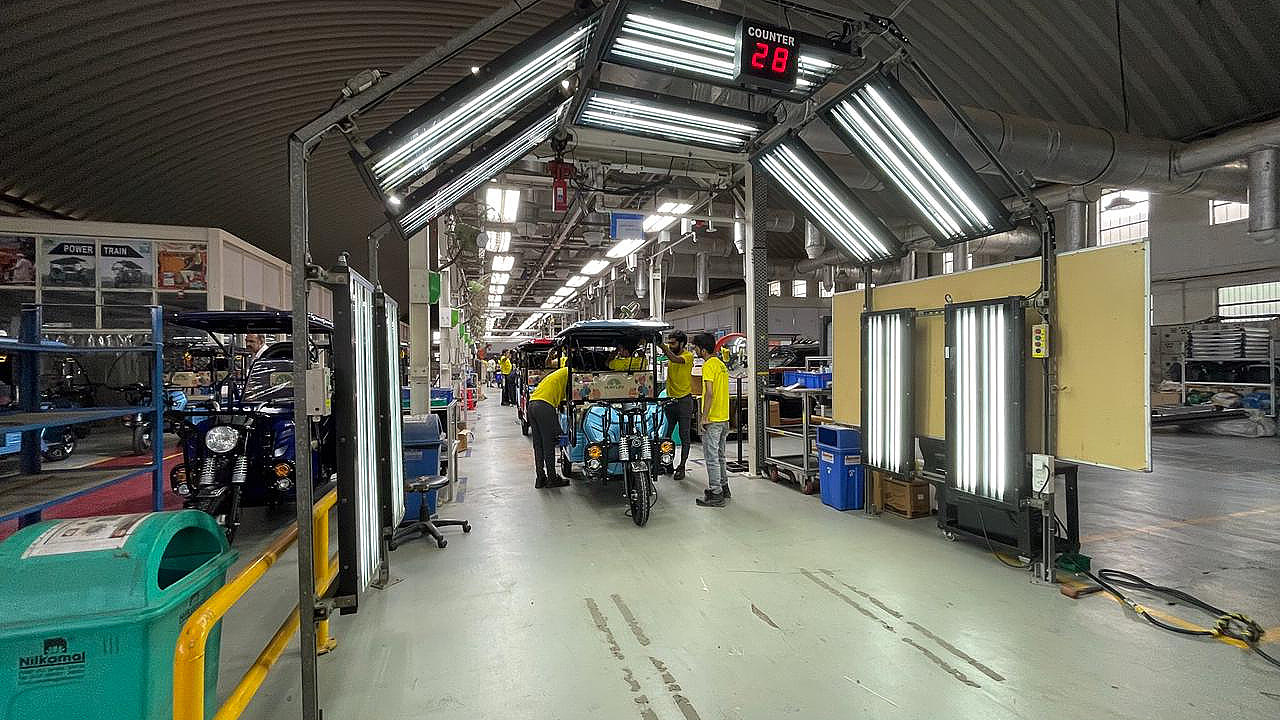
After 11 years of producing L-3 e3Ws, Saera Electric Auto is all set to enter the L-5 e3W category starting November 2022. In a discussion with Mobility Outlook, Nitin Kapoor, MD, Saera Electric Auto, stated that the vehicle is currently in the certification stage and will be available in passenger and cargo configurations with plans for additional variants.
Based on a 60V platform, the e3W will have a 5kW PMSM motor and a 10kWh lithium-ion battery pack and is expected to cost around INR 4.5 lakh, ex-showroom, India. In addition to the L-5 e3W category, the company also intends to compete in the high-speed e2W race. Currently, it sells three low-speed e2Ws under the Yogo brand. The MD said low-speed e2Ws are losing market share due to new Government policies, as the high-speed versions are being promoted more.
At the designing stage currently, the high-speed e2W from the company will be compatible on both 60V and 72V platforms with a 3kW BLDC motor and a 2.5kW-3kW lithium-ion battery pack; it will initially be launched as a b2b product, he added.
Kapoor expects the product, which is anticipated to cost around INR 70,000, to sell one lakh units in its first year of production, based on demand. Meanwhile, the company’s existing e3W will also see an upgrade by next year. He added that Saera Electric Auto is partnering with a US-based manufacturer to develop new cell chemistry with which the battery packs can be 100% made in India. Moreover, all the raw materials and the components, including the cells for the new battery pack, can be sourced from India, Kapoor noted. Interestingly, Saera Electric Auto's products were initially 50% localised, which is now increased to 90%.
Domestic And Global Expansion

With the current lineup of L-3 e3Ws and the low-speed e2Ws, Saera Electric Auto is predominantly present in Maharashtra, Orissa, Chattisgarh, MP, UP, West Bengal, UK, Haryana Bihar, Jharkhand, Assam, Punjab and J&K, through 400 dealerships.
Now with the L-5, the company plans for a pan-India expansion, including in States such as Tamil Nadu, Karnataka, Andhra Pradesh, Kerala and Odisha. Initially, the company intends to open ten dealerships in these States, with the goal of expanding to 100 dealerships by the end of FY23. Meanwhile, by the end of December 2023, the total number of dealerships is expected to reach 600 across India. However, Kapoor explained that all of these dealerships wouldn’t retail L-5 e3Ws; rather, only 50 select dealerships will be given the license to sell the upcoming e3Ws.
All the showrooms and networks designed for L-3 are incompatible with L-5; as the new product is in a slightly different segment, it requires infrastructure and dealership tailored to the product, he explained. The company intends to introduce more L-5 dealerships based on the product's popularity. Aside from domestic expansion, the company intends to go global. According to the MD, approximately 3% of the total production in FY22 was exported to Africa and the Middle East. With firm orders from these regions, it will aim to export 5% of its total production in FY23.
Adding Production To Meet Demand

As per FADA data, Saera Electric Auto sold 8,475 units of its Mayuri e3Ws in FY22. The company aims to sell around 45,000 units of L-3 and 5,000 units of L-5 by the end of CY23, including 5,000 units of exports. Until now, the company has been hampered by insufficient production capacity and to address these issues, it has recently purchased the Bawal plant from Harley Davison.
According to Kapoor, the plant's production capacity ranges from 25,000 to 40,000 e2Ws and 5,000 to 8,000e3Ws. Interestingly, the plant produced about 1,000 units of e3Ws in August, representing a 66.6% increase over July 2022. This facility will also help the company benefit from the upcoming Haryana Government policy that will exempt EVs produced and sold in the State from paying road tax.
A similar policy has also been regulated in UP. Given this, Saera Electric Auto also started production in another plant in Kosi, UP, from the end of June 2022, which will again help the company reap the policy benefits. However, the company has not invested much in the Kosi plant since the machinery has been relocated from its Bhiwadi and Bawal plants. The plant's current production capacity stands at 25 units of e3Ws a day; however, the company plans to make further investments in the plant to ramp the production to 1,000 units a month.
Moving forward, as the EV manufacturer makes its way to the southern part of the country, it intends to locate its next plant in the region. Kapoor said that by the end of 2023, the company aims to set up a manufacturing plant in Andhra Pradesh.
Contract Manufacturing As A Revenue Generator

Another major reason for the three plants, as explained by Kapoor, is that the company has entered into a partnership with LML and a few other e2W players to take up contract manufacturing. The MD stated that the company had been informed that production of LML products will begin in February 2023, while production of other brands will begin within FY23. Saera has decided to use only the Bawal plant for contract manufacturing as of now, he added. Notably, with contract manufacturing, the company will exceed the Bawal plant's maximum production capacity.
However, to still take advantage of the Haryana EV production policy, Saera intends to shift some of its production to its parent brand, Satra Group's plant in Gurugram, Haryana, according to Kapoor. He added that only the e2Ws will be produced at the factory at 25,000 units per year.
Saera Electric Auto believes that around 35% of its business revenue will be generated from the contract manufacturing business, the MD concluded.